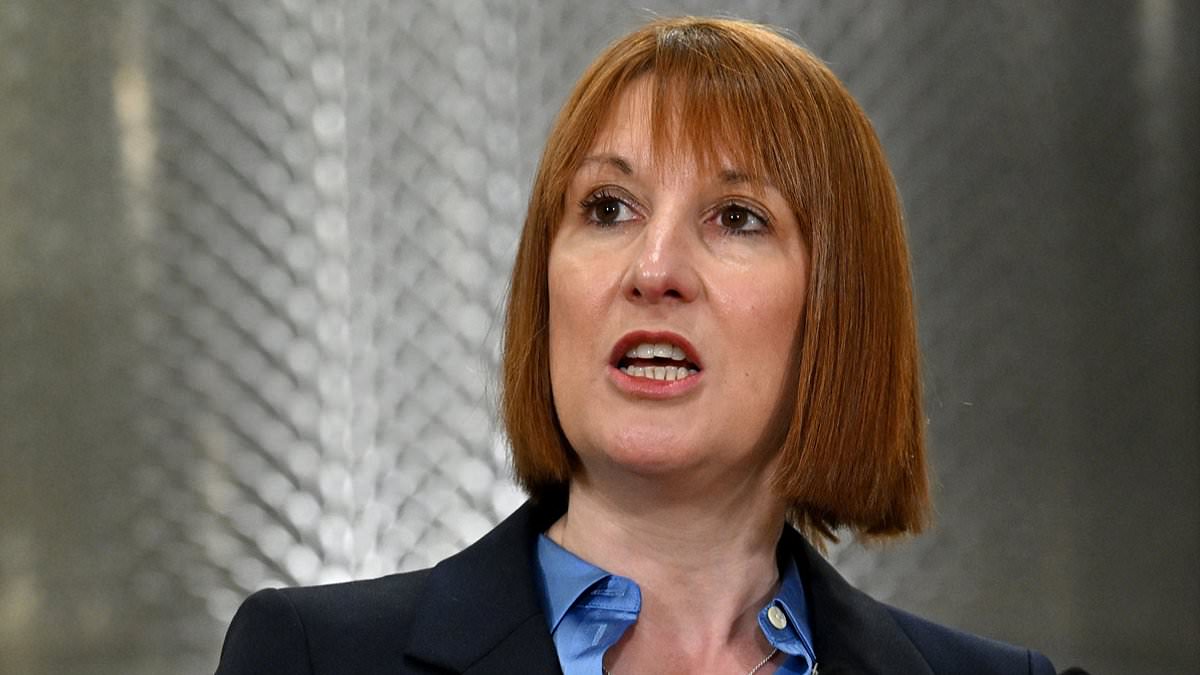Rachel Reeves could need to find £25billion from tax rises if she wants to keep public spending rising in line with national income, economists warn today.
The Institute for Fiscal Studies said even changing the Tory debt rule the Chancellor inherited, which requires debt to be forecast to fall as a share of national income within five years, would do ‘almost nothing’ to ease pressure on public-service funding.
Instead, the IFS warned that Ms Reeves could need significant tax rises to avoid spending cuts and to meet her pledge to borrow only to invest.
In a report published today, the independent economics research institute concluded that the Chancellor would need a tax rise of £16billion to remain on course to balance the budget in 2028/29 if there are no cuts to spending outside of public services.
This would be on top of the £9billion tax rise from measures set out in Labour’s manifesto, adding up to almost £25billion in total – equivalent to around £900 per UK household.
But the party’s pledges not to raise income tax and corporation tax or to increase National Insurance or VAT mean she may struggle to implement a tax rise on that scale.
It would be bigger than the net tax increases from July 1997, which was £14billion, and October 2010, which came in at £13billion.
The report states: ‘Ensuring all departments see their day-to-day budgets rise at least in line with national income would require a further top-up of £17billion. Combining this with a fresh £16billion (0.5 per cent of national income) tax rise would restore the forecast current budget to balance in 2028-29.
‘This would, of course, need to come on top of the £9billion of specific tax rises set out in Labour’s manifesto, so would be a tax rise of around £25billion in total. A net tax rise of this scale would be bigger than in the July 1997 and October 2010 Budgets, both of which took place early in the parliament of a new government.’ IFS director Paul Johnson said Ms Reeves’ first Budget, which she will deliver on October 30, could be ‘the most consequential since at least 2010’.
He added: ‘The new Chancellor is committed to increasing investment spending and to funding public services. To do so, she will need to increase taxes, or borrowing, or both.
‘Taxes are at an all-time high, and she is tightly constrained by her pledges not to raise the main rates of income tax or corporation tax, or to increase National Insurance or VAT at all.
‘The temptation then is to borrow more, perhaps changing the definition of debt targeted by the fiscal rules.
But, given her pledge to balance the current budget, that would not free up additional resource for day-to-day spending and in any case is not risk-free given the dual deficits – that is, both budget deficit and current account deficit – being run by the UK.’
He said any changes to capital gains tax would need to be a ‘careful reform’ rather than a simple increase. There is also speculation that Labour could make changes to inheritance tax.
A spokesman for HM Treasury said: ‘It’s right to say that we have inherited a tough financial position, but we won’t let the challenges of the past define our future. Despite uncovering a £22billion black hole in our public finances we are focused on making this the most pro-growth Treasury in history, built on the rock of economic stability, including robust fiscal rules that were set out in the manifesto.
‘That is how we will fix our public services and deliver on the promise of change.’ The IFS report was funded by the Nuffield Foundation charitable trust and used economic forecasting by the banking firm Citi.
